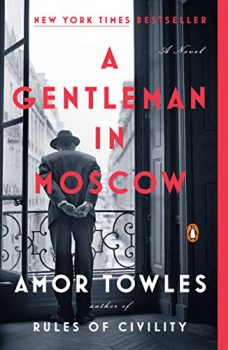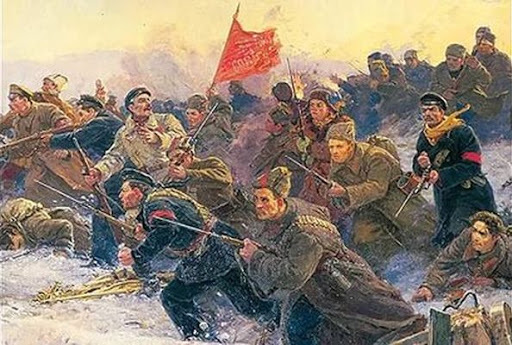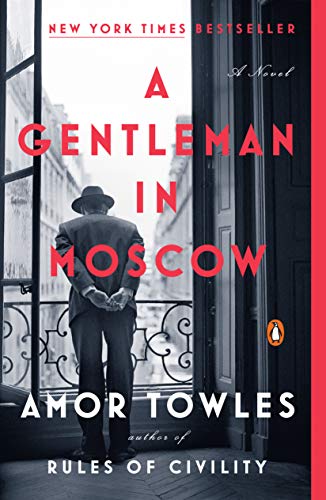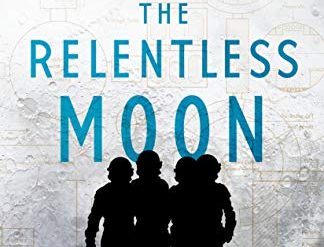
When historians look back at the twentieth century, they invariably designate the Russian Revolution of 1917-20 as one of the seminal events of the period. And it’s hard to dispute that judgment. Arguably, the Bolshevik takeover in Russia set in motion other world-shaking episodes, including the Nazi defeat in World War II, the arms race in the Cold War, and the Communist victory in China. Yet we Americans know little about the consequences for the people of Russia in the decades following the Revolution. Amor Towles’ towering novel, A Gentleman in Moscow, ably fills some of the gaps in our understanding. Digging into history by indirection, Towles follows the life of one former aristocrat as the changes wrought by the Communist Party take hold.
A Gentleman in Moscow by Amor Towles, audiobook, read by Nicholas Guy Smith (2016) 466 pages @@@@@ (5 out of 5)
Here is history by indirection
Count Alexander Ilyich Rostov becomes a “former person” in 1922 after returning from Paris for a brief stay in the elegant Metropol Hotel. Born in 1890, he is thirty-two years old when sentenced to house arrest for life in the hotel. Over the next three decades, we follow his passage through life against the background of the monumental changes engineered by the Communist Party. We never gain a front-row seat on those changes but view them through their impact on Count Rostov, his dear friend Mischa, the young woman he befriends as a child, and the friends he gains among the staff and guests of the hotel. It’s history by indirection.

Business as usual at the capital’s leading hotel
Through three decades under house arrest, Count Rostov appears unmoved by the state’s efforts to demean him. By the Cheka’s arbitrary sentence, which leaves him living in splendor. By the Party’s decision to move him from a luxurious suite to a tiny apartment in the hotel’s attic. By the steady decline of his savings, which forces him to seek the job of headwaiter in the restaurant where he obtains most of his meals. By the micromanagement of his work by the apparatchik running the hotel. By his friend Mischa’s increasing difficulties in a land where his poetry, once lauded, is now disdained. The Count’s untroubled demeanor—compounded by the steady cadence of Towles’ elegant prose and the matter-of-fact narration in this audio edition—will leave the reader unprepared for the novel’s explosive ending.
Meanwhile, Russia was undergoing radical transformation
As we follow Count Rostov through the years, we become vaguely aware of the changes wrought by the Revolution. Little of this is overtly obvious in this history by indirection, but the sense of it all seeps through Towles’ winning style.
- The persistence of the Tsarist secret police (Okhrana), first restyled the Cheka, then the NKVD, later the KGB
- The death of as many as twelve million people in the protracted Ukraine famine caused by the collectivization of rural land and the murder of the kulaks
- Stalin’s Great Purge that murdered many of the 1.2 million who died at the hands of the state under Communism and sent many of the estimated 12 million to labor camps in the gulag
- The drive to industrialization that turned the former Russian Empire into a superpower
- The heroic Russian resistance to the Nazi invasion, which cost the nation as many as 27 million lives
- The Cold War and the resulting intelligence duels between the KGB and the CIA
- The death of Stalin and the rise of Nikita Khruschchev as his successor
About the author

Amor Towles is the author of three novels to date, of which his bestseller, A Gentleman in Moscow, is the latest. He achieved acclaim five years earlier with the publication of Rules of Civility, which was also a bestseller. The New York Times wrote of that novel, “With this snappy period piece, Towles resurrects the cinematic black-and-white Manhattan of the golden age of screwball comedy, gal-pal camaraderie and romantic mischief.” In other words, A Gentleman in Moscow took the author in an entirely different direction. Towles holds degrees from Yale and Stanford Universities. He lives in Manhattan with his wife and two children.
For further reading
To view the latter-day consequences of the events portrayed in A Gentleman in Moscow, see Good books about Vladimir Putin, modern Russia and the Russian oligarchy.
You might also be interested in:
- 20 most enlightening historical novels (plus dozens of runners-up)
- Top 10 great popular novels reviewed on this site (plus dozens of runners-up)
- Top 10 historical mysteries and thrillers reviewed here (plus more than 100 others)
- 20 top nonfiction books about history plus more than 80 other good ones
And you can always find my most popular reviews, and the most recent ones, plus a guide to this whole site, on the Home Page.



























I would like to sign up for the weekly
Terrific! Go here: http://malwarwickonbooks.com/take-your-pick/, then scroll down a little and sign up there. Happy reading!